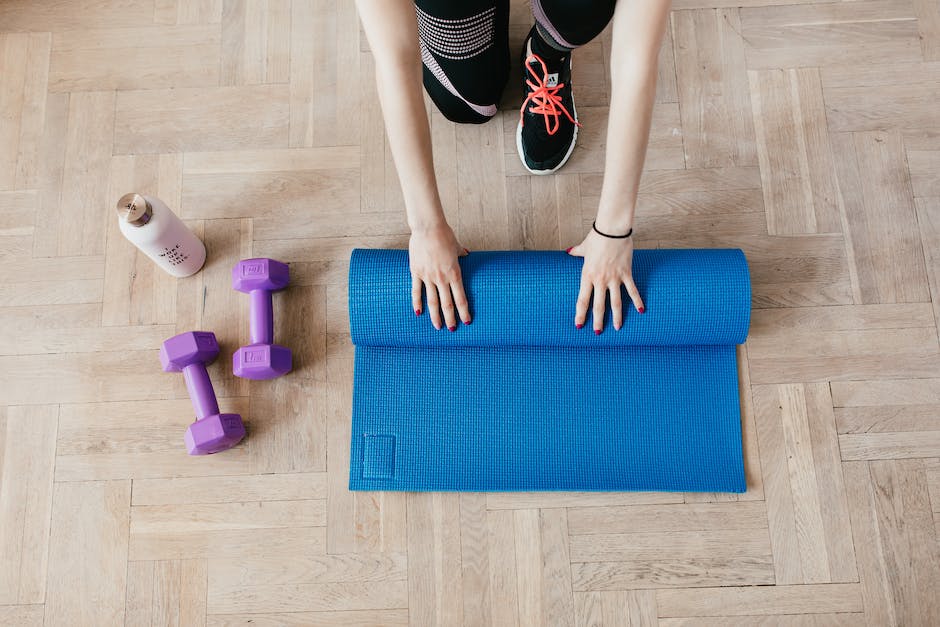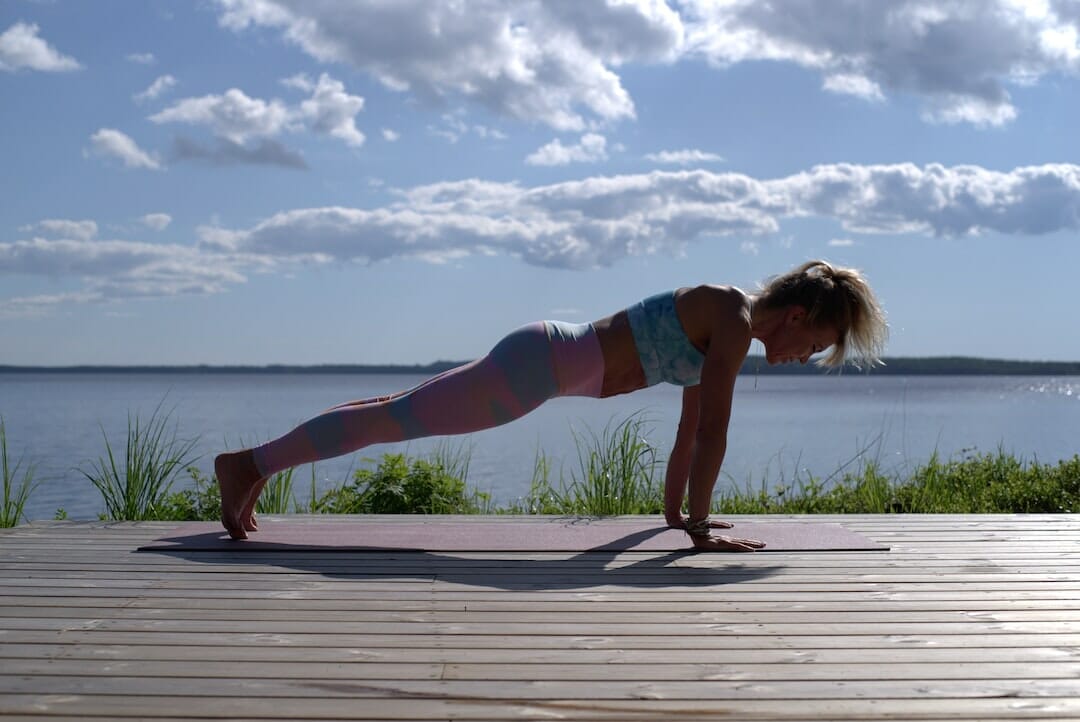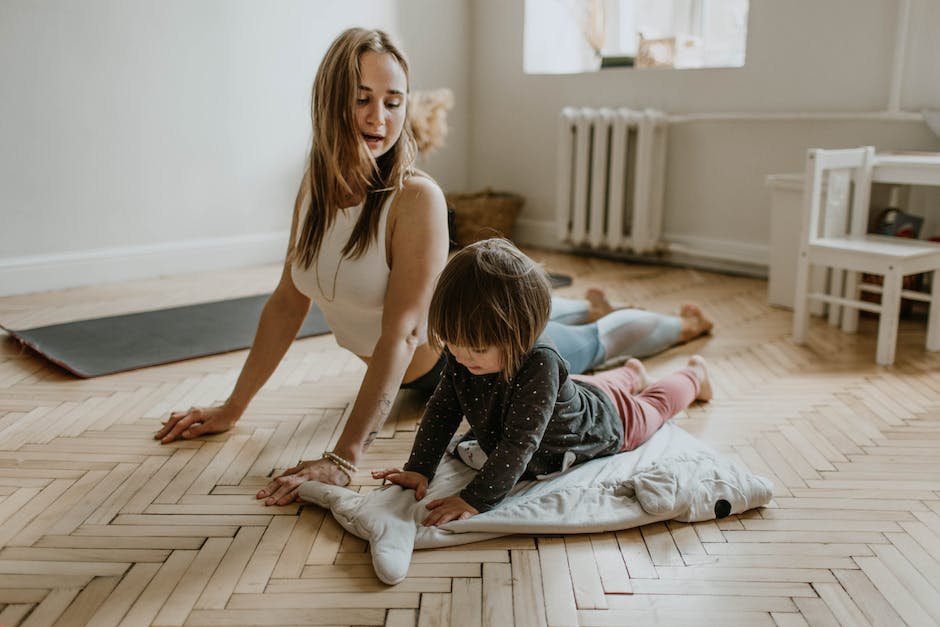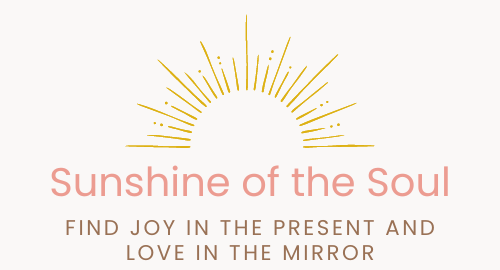Unlocking your true potential goes beyond just pursuing success – it involves personal growth, self-improvement, and overall well-being. One often-overlooked aspect of reaching our full potential is the crucial role that workouts play in personal development.
Regular exercise not only enhances our physical health but also benefits various aspects of mental strength such as discipline, confidence, and emotional resilience. In this blog post, we will explore the profound connection between fitness goals and holistic personal growth to help you harness the power of exercise for a more productive, creative, and fulfilling life.
Key Takeaways
- Regular exercise not only improves physical health but also contributes to personal development by building discipline, emotional resilience, and confidence.
- Workouts can improve cognitive function, alleviate stress and anxiety, boost energy levels, and enhance sleep quality.
- Engaging in aerobic exercises like running or cycling, strength training with weights or resistance bands, and yoga meditation classes for mindfulness practice while exercising are all effective ways of unlocking your potential through workouts.
- By cultivating positivity and resilience through overcoming mental barriers and seeking support from fitness communities or accountability partners one can achieve success holistically on their wellness journey with fitness.
The Connection Between Workouts And Personal Development
Workouts are crucial for personal development as they not only improve physical health but also build discipline, and resilience, and boost confidence and self-esteem.
Physical Health And Mental Wellbeing
Embarking on my personal development journey, I discovered the undeniable connection between physical health and mental well-being. Positively influencing one another, and maintaining an active lifestyle not only contributes to a stronger body but also nurtures a healthier mind.
Regular exercise plays a key role in boosting mental wellness by releasing endorphins – our body’s natural “feel-good” chemicals that help alleviate stress while enhancing emotional resilience.
As someone passionate about continuous growth and personal development, being physically active strengthened my ability to manage stress effectively and unlocked greater creative potential through heightened mental clarity.
Building Discipline And Resilience
Embarking on a fitness journey requires dedication, consistency, and hard work. These attributes not only strengthen your body but also help build mental fortitude, discipline, and resilience – essential traits for personal development.
For instance, if you’ve made it a goal to wake up early every morning for a brisk jog, you’re training yourself to push beyond temporary discomforts in pursuit of long-term benefits.
This determination can later be applied when tackling challenges at work or overcoming unexpected setbacks in your personal life. As you progress with your workouts, increased endurance will offer newfound confidence that carries over into daily activities – allowing you to tackle obstacles head-on with unwavering resilience.

Boosting Confidence And Self-Esteem
Building confidence and self-esteem through workouts is a powerful way to unlock your full potential. As you challenge yourself physically, gradually pushing beyond your comfort zone, you’ll develop a greater sense of accomplishment and belief in your abilities.
One essential aspect of boosting confidence through exercise is focusing on measurable progress. Keeping track of milestones along your wellness journey can serve as tangible evidence of personal growth and improvement.
Moreover, engaging in regular physical activity not only improves body image but also has an undeniable impact on overall mental health. Exercise releases endorphins – the “feel-good hormones” – which help alleviate stress and anxiety while promoting feelings of happiness and well-being.
This endorphin boost contributes significantly to increased self-confidence as individuals feel empowered by their ability to overcome obstacles and maintain control over their lives.
The Benefits Of Regular Exercise For Personal Development
Regular exercise has numerous benefits for personal development, including increased energy levels, improved sleep quality, boosted cognitive function, reduced stress and anxiety, and enhanced emotional resilience.
Increases Energy Levels
Regular exercise can provide a significant boost in energy levels, which is essential for those pursuing personal growth and productivity. Physical activity stimulates the release of endorphins, natural chemicals that originate from the brain and induce a sense of euphoria.
Not only does exercise improve energy levels through endorphin release, but it also enhances sleep quality. By engaging in physical activity during the day, we are better able to fall asleep faster and enjoy deeper sleep at night.
Improved sleep ultimately leads to greater overall energy levels during waking hours.
Improves Sleep Quality
Exercise not only gives us energy but also can improve the quality of our sleep. Regular workouts can help individuals fall asleep more quickly and enter into deep, slow-wave sleep.
This type of sleep is essential for muscle recovery and building, which ultimately enhances physical fitness levels. Studies show that exercise improves overall well-being indirectly by reducing stress and anxiety, which are often barriers to getting sufficient rest.
In addition, regular exercise can alleviate common sleep-related problems such as insomnia or difficulties staying asleep throughout the night.
Boosts Cognitive Function
Regular exercise doesn’t just improve our physical health, it can also boost cognitive function. From improving memory retention to increasing concentration and focus, exercise has a significant impact on the brain.
For those looking to unlock their potential through personal development, incorporating regular physical activity into their routine can lead to improved mental clarity and productivity.
Whether it’s taking a brisk walk outside or sweating it out with high-intensity interval training (HIIT), finding a workout style that fits your needs is crucial in achieving holistic personal growth.
Reduces Stress And Anxiety
Regular exercise is a powerful tool for reducing stress and anxiety. When we engage in physical activity, our bodies release endorphins which are natural mood boosters that promote a feeling of well-being.
In fact, studies have shown that just 30 minutes of moderate-intensity exercise can significantly reduce symptoms of anxiety and depression.
Personally, I find that engaging in yoga or meditation-based workouts like Pilates and Barre really helps me to unwind after a stressful day at work or when my mind gets foggy with uncertainty about my future plans.
The guidance from leading experts has taught me how to focus on both my breathing and my body’s movements to gain clarity while leaving behind feelings of anxiousness and tension.
Enhances Emotional Resilience
Regular exercise can be a powerful tool for enhancing emotional resilience, which is a crucial aspect of personal development. Emotional resilience is the ability to navigate stress and adversity with confidence, positivity, and adaptability.
Exercise helps build this muscle by providing a controlled and safe environment to push ourselves physically, mentally, and emotionally.
Studies have shown that physical activity can help reduce symptoms associated with depression and anxiety while boosting mood and promoting greater feelings of calmness. Additionally, exercise has been linked to improved cognitive function, including increased memory retention and better decision-making abilities.
These benefits not only help individuals manage difficult situations but also enhance creativity, productivity, and innovation in their work or daily life activities.
Types Of Workouts For Personal Development
Cardiovascular exercise is great for improving heart health and endurance, while strength training can build physical strength and empower individuals to push through challenging situations.
Yoga and meditation provide mental clarity, relaxation, and a focus on breathing and mindfulness, while low-competition exercises can help individuals avoid comparing themselves to others and instead focus on personal progress.
Cardiovascular Exercise
Cardiovascular exercise, or aerobic exercise, is an essential component of any workout routine for personal development. It gets the heart pumping and improves blood flow to the brain, which helps boost cognitive function and mental clarity.
To get started with cardiovascular exercise for personal growth, you can try activities like running or cycling outdoors, taking a dance class, or joining a group fitness session at your local gym.
Remember that consistency is key – aim to incorporate at least 30 minutes of moderate-intensity aerobic activity into your daily routine just a few times per week.

Strength Training
As part of a holistic approach to personal development, strength training is an important component of any fitness program. Resistance training involves contracting muscles against a force, such as lifting weights or using resistance bands.
But the benefits don’t stop there. Regular strength training has also been linked to improved mood regulation and increased self-esteem and self-efficacy.
By setting goals and tracking progress in the gym, individuals can develop discipline and resilience that carries over into other areas of their lives.
Yoga And Meditation
As part of the different types of workouts for personal development, yoga, and meditation have gained significant attention in recent years. Yoga is a physically demanding practice that combines breathing exercises, meditation, and poses to promote mental clarity and physical health.
Hatha yoga is particularly helpful for breath-controlled exercises, which can lead to increased awareness and focus.
Research has shown that practicing both yoga and meditation regularly leads to changes in brain areas linked to mood regulation, arousal control, and emotional processing.
Walking meditation can help with creativity while mindfulness practices during exercise unlock cognitive potential by sharpening mental focus.

Group Fitness Classes
I have found that group fitness classes are a great way to stay motivated and stick to my workout routine. Not only do these classes offer a middle ground between working out alone and hiring a personal trainer, but they can also improve self-esteem and confidence, leading to positive impacts on personal development.
In fact, studies show that working out in a group setting can increase motivation, burn more calories, and make exercise more enjoyable overall.

Low-Competition Exercises
I love incorporating low-competition exercises into my workout routine for personal growth. These types of exercises focus on individual progress and don’t involve competing against others, which can be a refreshing change from traditional team sports or high-intensity workouts.
One great benefit of these exercises is that they allow you to focus solely on your own progress without feeling the pressure to outdo others. This can help boost self-confidence and promote mindfulness during workouts, allowing you to reap both physical and mental benefits.
Creating A Personalized Workout Routine For Personal Growth
To create a personalized workout routine for personal growth, start by setting clear and measurable fitness goals, finding exercises that suit your personality and needs, establishing a consistent workout schedule, and incorporating physical activity into other areas of your daily life.
Setting Goals And Tracking Progress
Setting goals and tracking progress is crucial in achieving success in personal development through workouts. Here are some tips to help you set goals and track your progress:
- Start by defining your ultimate fitness goal, then break it down into smaller, achievable mini-goals.
- Make sure your goals are specific, measurable, realistic, and time-bound (SMART). For instance, instead of setting a vague goal like “I want to get fit,” set a specific goal like “I want to lose 10 pounds in the next 2 months.”
- Write down your goals and keep them somewhere visible, such as on your phone or fridge.
- Track your progress towards each mini-goal by keeping a training diary or log. This can include details like the exercises you did, the number of reps/sets completed, and how you felt during the workout.
- Celebrate even small successes along the way. Every little bit counts towards reaching your ultimate goal!
- Reevaluate and adjust your goals as necessary. If you find that a particular goal is unrealistic or too easy to achieve, revise it accordingly.
Remember that working with a personal trainer can also be helpful in setting realistic fitness aspirations and monitoring progress toward achieving them. By setting clear goals and tracking your progress along the way, you’ll be well on your way to unlocking your potential through exercise!
Finding A Workout Style That Suits Your Needs And Personality
When it comes to personal development through workouts, finding a workout style that suits your needs and personality can make all the difference. Some people thrive in group fitness classes, while others prefer solo activities like running or yoga.
For example, if you’re someone who enjoys competition and pushing yourself to the limit, endurance training may be right up your alley. On the other hand, if you’re looking for a more meditative workout that focuses on the mind-body connection, yoga could be a better fit.
Whatever your preference may be, choosing a workout style that aligns with your personality will help keep you motivated and engaged in achieving your fitness goals.
Establishing A Routine And Sticking To It
Creating a workout routine that works for you is only the first step. The key to unlocking your potential through exercise lies in sticking to that routine consistently. Here are some tips for establishing and maintaining a habit of regular workouts:
- Plan ahead: Set aside specific times each week when you will exercise, and build those time slots into your schedule. Treat them as non-negotiable appointments with yourself.
- Start small: Don’t try to take on too much too soon. Begin with manageable workouts so that you can build up gradually over time.
- Make it enjoyable: Choose exercises that you enjoy, and vary your routine regularly to keep things fresh and interesting.
- Find accountability partners: Share your workout plans with friends or family members who will help hold you accountable for staying on track.
- Reward yourself: Celebrate milestones along the way, such as reaching a particular goal or completing a full week of consistent workouts.
By establishing a solid workout routine and committing to sticking with it, you’ll be well on your way to unlocking your potential for personal growth and self-improvement. Remember, consistency is key!
Incorporating Exercise Into Daily Life
As someone who is committed to personal growth, I know how important it is to incorporate exercise into my daily routine. It can be challenging to find the time or motivation, but with a few simple tips, anyone can make it a part of their daily life. Here are some ways to incorporate exercise into your daily routine:
- Start Small: Begin by setting achievable goals that fit into your schedule. For example, try taking a 10-minute walk during your lunch break or doing a quick workout before you start your day.
- Find an Accountability Partner: Having someone to hold you accountable can be a powerful motivator. Consider finding a friend or family member who shares your commitment to exercise and work together to stay on track.
- Make it Fun: If you enjoy the activity, you’re more likely to stick with it. Incorporate activities you enjoy such as dancing, hiking, or playing sports.
- Schedule it in: Add exercise as an appointment in your calendar and treat it like any other commitment in your day.
- Use Your Environment: Take advantage of your surroundings by using stairs instead of elevators or walking/biking instead of driving whenever possible.
By incorporating exercise into our daily lives and making it part of our routines, we not only improve our physical health but also increase our mental clarity and well-being. Remember that every little bit counts, so start small and celebrate each achievement along the way!
Mindset In Personal Development Through Workouts
Developing a positive mindset during workouts is key to unlocking your potential for personal growth and success.
Overcoming Mental Barriers
When it comes to personal growth and development, mental barriers can be a significant obstacle. These mental blocks may come in the form of self-doubt, fear, or lack of motivation.
They can result in a loss of confidence, clarity, and direction.
Overcoming these mental obstacles is crucial for unlocking your full potential. One effective way to do this is through regular exercise. By pushing through physical challenges during workouts, you build resilience and develop mental toughness that carries over into other areas of your life.
It’s important to acknowledge that overcoming mental barriers takes time and perseverance.
You may face setbacks along the way but being kind to yourself will help you maintain progress over time as well as seeking support from coaches or accountability partners who share similar visions like yours will aid on your journey toward attaining personal development goals easier.
Cultivating Positivity And Resilience
One of the essential benefits of workouts for personal development is their ability to cultivate positivity and resilience. Regular exercise can help you develop a growth mindset that allows you to see challenges as opportunities for learning and growth.
By focusing on progress rather than perfection, you can create a positive feedback loop that encourages continued effort toward achieving your fitness goals.
Moreover, cultivating positivity through physical exercise has been shown to enhance emotional resilience in individuals. Research shows that regular workout routines increase endorphin production, resulting in improved self-esteem and reduced stress levels.
These factors contribute to an overall sense of well-being and enable individuals to approach life’s challenges with more grace and ease.
Practicing Mindfulness During Workouts
During workouts, it’s important to not only focus on the physical aspect but also on the mental aspect. Practicing mindfulness can help you stay present in the moment and fully engaged in your exercise routine.
One way to practice mindfulness during workouts is through breathing exercises. Focusing on deep belly breaths can help calm your mind and reduce stress levels.
Another way is to pay attention to how each movement feels in your body, noticing any sensations or discomfort without judgment.
The Role Of Community And Support In Personal Development Through Workouts
Building a supportive community can make all the difference in achieving your personal development goals.
Joining Fitness Communities And Groups
Being a part of a fitness community or group can provide numerous benefits for personal development. It creates an environment where individuals with similar goals and aspirations can come together to support and motivate each other toward achieving those targets.
It provides social interactions that help develop positive relationships, which is essential in building mental health and well-being.
Fitness communities also serve as a source of accountability when it comes to maintaining workout consistency. Being part of such groups helps individuals stay committed to their exercise routines since they will feel motivated by the achievements of others in the group.
Building Accountability Partnerships
One of the most effective ways to ensure consistency in your workout routine and personal development journey is by building accountability partnerships.
This involves finding a like-minded individual who shares similar goals and values as you, whom you can work with to achieve those goals.
For instance, having an accountability partner can be helpful when setting fitness targets such as working out at least thrice weekly or eating healthily. They can check on us to make sure we stick to our plan while providing encouragement when things get tough.
Working With A Personal Trainer Or Fitness Coach
Working with a personal trainer or fitness coach can provide you with the guidance and accountability needed to achieve your fitness goals. Personal trainers are highly qualified professionals who create personalized exercise programs that cater to their client’s specific needs, abilities, and goals.
Having a personal trainer also ensures your safety during workouts as they instruct proper form and technique while monitoring progress and adjusting routines accordingly.
Additionally, personal trainers can provide education on how nutrition plays a role in fitness journeys by creating diet plans tailored to their client’s goals.
The Bottom Line
In conclusion, workouts play a significant role in personal development. They can help individuals build discipline and resilience, boost their confidence and self-esteem, increase energy levels, improve sleep quality, reduce stress and anxiety, and enhance emotional resilience and cognitive function.
There are various types of workouts that one can choose from – cardio exercises like running or cycling, strength training with weights or resistance bands, and yoga meditation classes for mindfulness practice while exercising.
Creating a personalized workout routine that suits your needs is vital to achieving personal growth goals. The right mindset is also essential for unlocking potential through exercise.
Cultivating positivity and resilience by overcoming mental barriers can help with consistency in workouts to achieve success holistically.
